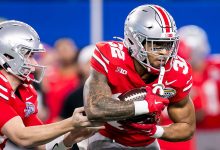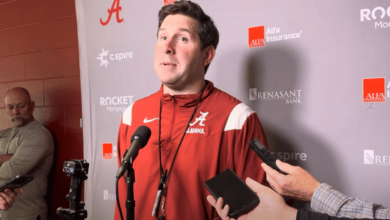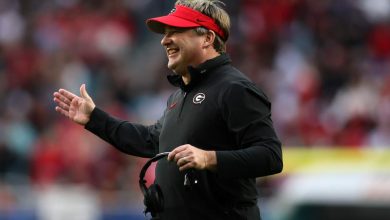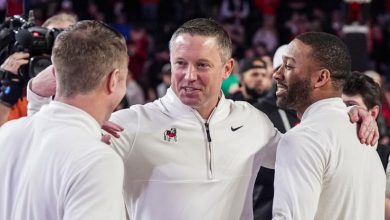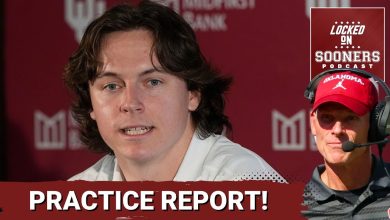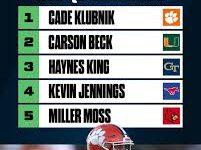Dabo Swinney ranks among top 5 coaching hires since 2000 for transforming Clemson into a national powerhouse with multiple titles.
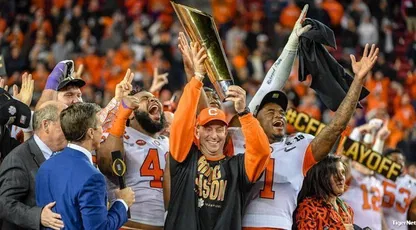
In the ever-evolving landscape of college football, few coaching hires have had the seismic impact of Dabo Swinney at Clemson. What began as a seemingly low-risk, interim appointment in 2008 evolved into one of the greatest success stories in modern sports. Swinney’s rise from position coach to national championship-winning head coach is more than just a tale of winning—it’s a masterclass in culture-building, recruiting, and sustained excellence. As we evaluate the most influential and successful coaching hires since the turn of the millennium, Swinney’s name indisputably belongs in the top five. His transformation of Clemson from an ACC also-ran to a perennial national powerhouse is one of the most compelling coaching achievements in the last 25 years.
When Swinney was promoted to interim head coach in October 2008 following Tommy Bowden’s midseason resignation, few predicted he would become the face of the program. At the time, Swinney was serving as Clemson’s wide receivers coach and had no head coaching experience. His promotion was viewed by many as a placeholder move. Even when he was officially named head coach in December 2008, skepticism lingered. ESPN analysts and college football pundits questioned the decision, and some graded the hire as a “D+.” It was, in many ways, an unconventional choice for a program aiming to break into national prominence.
But Swinney brought something that metrics and experience couldn’t measure: energy, vision, and a relentless belief in the potential of the Clemson program. He immediately set about transforming the culture. He introduced traditions like the “Tiger Walk,” emphasized player development on and off the field, and made clear his commitment to winning not just games, but hearts and minds. His message resonated with recruits, boosters, and, eventually, the entire college football landscape.
One of Swinney’s most defining traits has been his ability to identify and retain elite coaching talent. His early staff hires, such as offensive coordinator Chad Morris and defensive coordinator Brent Venables, were pivotal in Clemson’s rise. Morris helped modernize Clemson’s offense, while Venables turned the Tigers into one of the nation’s most feared defensive units. Under their leadership, Clemson improved in virtually every statistical category. These hires signaled Swinney’s understanding that to build a national power, he had to surround himself with high-level football minds and allow them to thrive.
Recruiting was another area where Swinney quickly left his mark. With a background in recruiting as an assistant, he leaned heavily on his ability to build relationships with players and families. His infectious energy and clear vision for Clemson football resonated with top-tier talent. Within a few seasons, Clemson was consistently landing top-10 recruiting classes—competing with the likes of Alabama, Georgia, and Ohio State for elite prospects. Perhaps more importantly, Swinney developed that talent. He created a pipeline of NFL-ready players, sending stars like Deshaun Watson, DeAndre Hopkins, Trevor Lawrence, and Christian Wilkins to the next level.
The turning point for Swinney—and for Clemson—came in the 2011 season. The Tigers finished 10-4, won the ACC Championship, and made their first major bowl appearance under Swinney. Though they were blown out by West Virginia in the Orange Bowl, the foundation was clearly in place. The following years saw Clemson begin to dominate the ACC and inch closer to national relevance.
In 2015, everything changed. Behind quarterback Deshaun Watson and a fearsome defense, Clemson went 14-1, won the ACC, and earned a berth in the College Football Playoff National Championship Game, where they narrowly lost to Alabama. It was a statement year—proof that Clemson could go toe-to-toe with the sport’s elite programs. Swinney had taken the program from hopeful to headline.
But it was 2016 that cemented Swinney’s place in history. That season, Clemson again reached the national title game, this time defeating Alabama in a dramatic rematch that featured a last-second touchdown pass from Watson to Hunter Renfrow. Clemson’s first national title since 1981 wasn’t just a crowning achievement; it was a cultural and strategic validation of everything Swinney had built over the previous eight years. He had turned Clemson into a national brand, and the Tigers were just getting started.
The 2018 season was perhaps Swinney’s masterpiece. With freshman quarterback Trevor Lawrence at the helm and a historically dominant defense, Clemson went 15-0—the first major college football team to achieve that mark since 1897. They steamrolled Alabama in the national championship game, winning 44-16 in one of the most lopsided title games of the modern era. It was not only a second national title for Swinney, but also a clear statement: Clemson wasn’t just competing with the best; it was the best.
From 2015 to 2020, Clemson made six straight College Football Playoff appearances, winning two national championships and reaching four title games. During this span, the Tigers had multiple top-10 finishes, won six consecutive ACC Championships, and produced numerous All-Americans and NFL Draft picks. Swinney’s program became a model of consistency, rivaling Nick Saban’s Alabama in both results and reputation.
But Swinney’s success isn’t limited to wins and championships. One of the most remarkable aspects of his tenure has been the program’s academic and cultural development. Clemson has consistently posted high Academic Progress Rates (APR), and Swinney has been vocal about developing players as people, not just athletes. He’s implemented programs to help players transition into life after football, invested in mental health resources, and prioritized character and leadership development.
Critics have occasionally questioned Swinney’s reluctance to fully embrace the transfer portal or NIL (Name, Image, Likeness) landscape. However, even in an evolving era of college football, he has adapted without compromising the foundational principles of his program. His recruiting remains elite, and while Clemson hasn’t added a national title since 2018, it continues to compete at the highest level.
When comparing coaching hires since 2000, Swinney’s achievements are staggering. Unlike many of his peers who were hired with established resumes—Nick Saban at Alabama, Urban Meyer at Florida, Jim Harbaugh at Michigan—Swinney was a virtually unknown assistant. His rise wasn’t fueled by hype or pedigree but by passion, leadership, and an unshakable belief in his players and staff.
In just over 15 years, he has accumulated more than 160 wins, multiple national titles, and countless accolades. He’s led Clemson to the most successful era in program history and turned a regional contender into a national dynasty. Clemson, once mocked as “Clemsoning” for its inability to win big games, is now synonymous with excellence, thanks largely to the man at the helm.
Today, Dabo Swinney’s name is etched alongside the sport’s greatest coaches—not just for his winning percentage or playoff appearances, but for the way he’s built something sustainable and meaningful. His impact extends beyond the gridiron, influencing college football culture, coaching philosophy, and the broader conversation about what it means to run a successful program.
So, when we talk about the top five coaching hires since 2000, the criteria are clear: program transformation, championship success, recruiting dominance, cultural impact, and long-term relevance. By all these measures, Dabo Swinney doesn’t just qualify—he excels.
From interim coach to national champion, from overlooked assistant to coaching titan, Swinney’s story is not just about winning games. It’s about vision, leadership, and the power of believing in something bigger than yourself. In a sport defined by change, Dabo Swinney’s Clemson is a symbol of what’s possible when belief, strategy, and opportunity collide. That is why he is, without question, one of the greatest coaching hires of the modern era.

